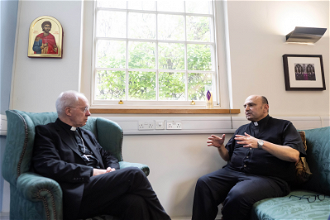Lima: Climate report warns countries not adapting quickly enough

image NASA
The United Nations Environment Programme (UNEP) Adaptation Gap Report was launched at the EU Pavilion at COP 20 in Lima on December 5th 2014. The Report claims that, even if emissions of greenhouse gases are stabilised at a level that is consistent with the goal of the United Nations Framework Convention on Climate Change (UNFCCC), both the risks and the impacts of climate change are expected to increase significantly in coming decades.
The authors believe that it is essential to adopt a strategic framework for adaptation with clearer goals and targets. This would help focus the ongoing negotiations on adaptation the UNFCCC in Lima and beyond.
The first emissions gap report was published in 2010. The aim of the various emission gap reports is to analyse the estimated gap between emission levels consistent with the goal of keeping global average temperature increase below 2 degree Celsius during the 21st century. This naturally is predicated on the assumption that every country will meet the pledges which they have made for emissions reduction.
The report focuses on developing countries, where adaptation needs are anticipated to be the highest and the capacity to deal with climate change disruptions is often the lowest. The timescale in the report is the period from 2010 to 2050, which is the most relevant period of time for framing adaptation decisions and actions.
The Report recognises that it is more difficult to estimate the adaptation gap than to calculate an emissions gap. The reason for this is that there are no globally agreed goals or measuring instruments for determining adaptation. As a result, it highlights three key challenges which will arise in any attempt to create a framework for identifying adaptation gaps. These include: (i) a framework which is applicable across the globe on different spatial scales and across many sectors and risks, (ii) An ability to adequately capture current gaps in adapting to existing climate conditions and variability, as well as future gaps arising from the impact of increased climate change. (iii) It should acknowledge, and allow for, differences in societal values and preferences with regards to determining a ‘desirable’ level of adaptation at local, national, regional and global levels.
Funding Gap
The UNEP Report fears that there is likely to be a major funding gap for adaption initiatives after 2020, unless new and additional finance for adaptation becomes available. This conclusion is based on an analysis of existing global, and national estimates of the costs of adaptation, against an assessment of levels and trends in public adaptation finance flows. The 5th Assessment Report by the IPCC says that existing global estimates of the costs of adaptation in developing countries range between US$70 billion and US$100 billion a year globally by 2070. The findings of the UNEP report suggest that these figures are very conservative. It estimates that, even in a 2 degree Celsius scenario, climate change adaptation is likely to cost developing countries $150 billion per annum during the period 2025 to 2030. It could jump as high as $500 billion by 2050.
However, the report warned that, if emissions continue rising at their current rate – which would lead to temperature rises well above 2C – adaptation costs could hit double the worst-case figures. At COP 20, developing nations are demanding that developed countries produce a credible road map for scaling up contributions to the adaption fund to $100 billion per annum so that poor countries they can plan how to use the money in the most cost effective way.
There is also pressure on countries such as Australia, Austria, Belgium, Ireland, Iceland, Portugal and Greece which have not made financial pledges to do so here COP 20.


















